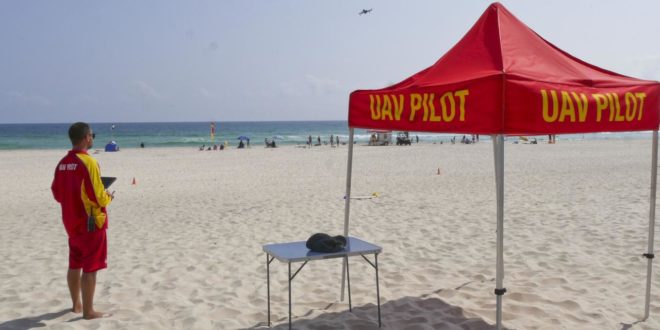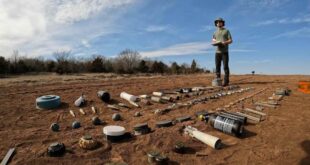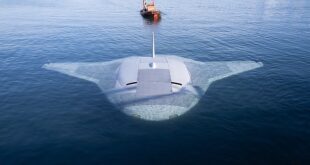SHARK mitigation has once again divided Tweed leaders.
Two shark drones have been funded for the next 12 months on the Tweed coastline but some don’t think the region got its fair share.
The technology, to be hosted at Cabarita and South Kingscliff/Cudgen, is part of a new $8 million strategy to protect beachgoers from sharks.
This follows a successful three-year trial by the Department of Primary Industry partnered with Surf Life Saving NSW.
Shark mitigation in the area has been a divisive point in the community since Rob Pedretti, 60, was killed by a shark while surfing at Kingscliff last month a week after the drone trial ended locally.
<<READ MORE: Mates fought off giant 3m shark after fatal attack off beach>>
Tweed MP Geoff Provest said the 12-month time frame enabled stakeholders to reassess what was needed and where at the end of each season.
Mr Provest said scientists, surf life savers and the DPI worked together to do a risk analysis, among other things, when asking for funding for certain areas.
“We respond to what the experts in the field ask for,” he said.
The cash splash didn’t impress Tweed Shire councillor Reece Byrnes, who last week put forward a notice of motion to council to buy six drones of their own to loan to surf clubs.
<<READ MORE: Shark attack death shows ‘urgent’ need for drones>>
Cr Brynes said the Liberal-National Government had failed to provide adequate shark mitigation measures for the Tweed Shire.
“After (three) long years all Tweed Shire has received is only two drones and a shark listening station but no SMART drumlines for our beaches,” he said.
Cr Byrnes said the four surf life saving clubs in the shire “desperately needed” effective shark mitigation and other general beach and surf safety measures.
“Locals are angry that we’ve been totally forgotten in this new statewide plan. We see major shark mitigation measures down NSW Coast yet Tweed Shire has been neglected leaving us all vulnerable.
“When it comes to our safety in the water, the time for talk is over. The trial has finished, and we need action now.”
Fellow councillor and surf life saver of eight years James Owen wrote to the NSW Minister Agriculture Adam Marshall last month pushing for expansion of the drone program and the installation of SMART drumlines.
<<READ MORE: Tweed leaders rally for funding to prevent another tragedy>>
“It is (the funding) a positive step forward … now its funded as a program and not just a trial basically means the drones are here to stay,” he said.
“It’s a start and now lets build on it.
“We know the funding will provide another 400 drone pilots across NSW.
“They are a fantastic thing, more eyes in the sky, on the water and on the beach which means the community can be kept safer and have an extra sense of security.”
Richmond MP Justine Elliot slammed the two drones funded as an “absolute disgrace”.
“Let’s remember this trial has been going for years and now essentially we don’t have any assurances for water and beach safety in our area,” she said.
“Lets step back and look at things – there is significant mitigation up north of us for Queensland and down south in Byron and Ballina. The State Government has just funded this huge program and what do we get at the end of it?
<<READ MORE: $8 million plan to protect beach users from sharks>>
“Two drones is just a complete disgrace, we need to know our waterways are safe and also as a tourist area, people need to feel safe coming here.
“At the end of the day need more drones and smart drumlines.”
SURF LIFE SAVERS, THE DRONE PROGRAM AND WHAT HAPPENS NOW
SURF Life Saving NSW operations manager Brent Manieri said the two new drones were separate from the two drones Cudgen Surf Life Saving Club had for their own use during training and competitions.
He confirmed the price of the drones varied on needs but could range from $7500 to $10,000.
The drones, known as Unmanned Aerial Vehicles, are fitted with a siren and speaker to give real time alerts to people in the water about potential dangers from animals to rip tides.
SLS NSW UAV pilot Mitch Anderson at the Kingscliff Surf Life Saving Club on Kingscliff Beach earlier this year. Photo: Jessica Lamb
“We are very grateful to the government for expanding upon what was a successful trial which was clearly indicated in the community feedback surveys. We are excited to almost double the program during the 20/21 season,” Mr Manieri said.
“The UAVs are definitely a game changer. Whereas beaches may have been closed previously for a suspected shark, we can now clearly identify what the marine species it is – this means we can close beaches less often and people can enjoy recreation on the beach more.”
Mr Manieri said there had been an obvious increase in discussion about the UAV services on the Tweed following the tragic fatal shark attack in June.
“There are finite funds available to deliver the UAV program and the NSW Government committed to deliver across all LGAs on the Coast – no doubt SLS NSW and the NSW Government would love to have the resources everywhere,” he said.
While most of the program will be operated by trained surf club members and volunteers, paid employment will be available during some school holidays.
 Unmanned Aerial Vehicle The latest drone news
Unmanned Aerial Vehicle The latest drone news





